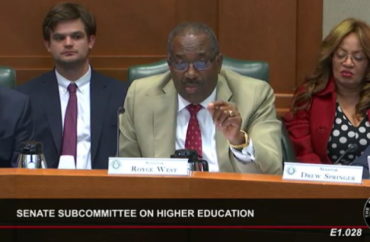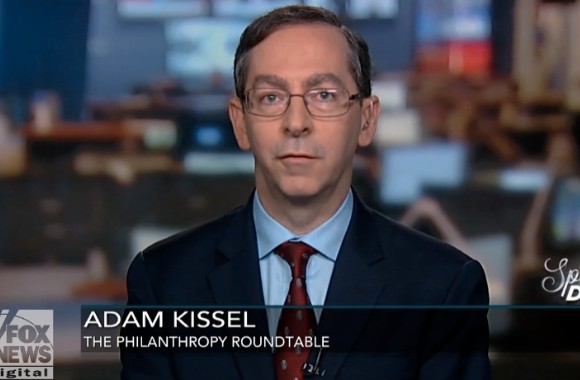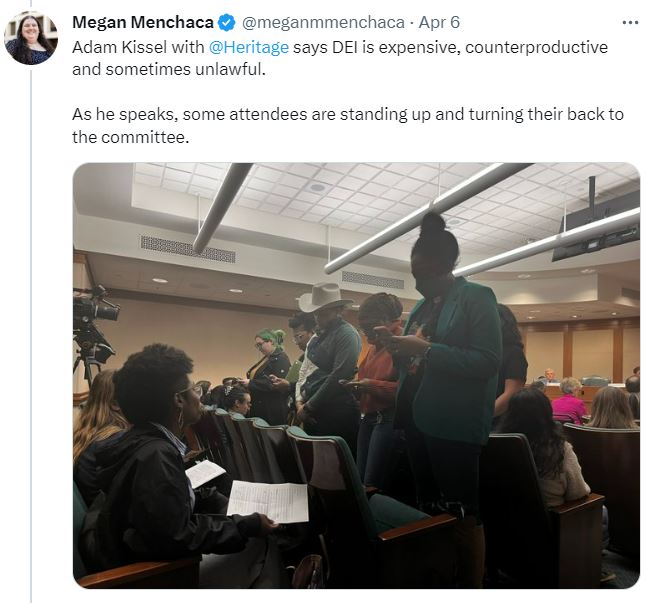
OPINION: DEI is itself oppressive, wielded by those with power to pressure people into conformity
The days of campus DEI are numbered. For the uninitiated, that’s “diversity, equity and inclusion” — the nice-sounding terms that are weaponized by campus DEI offices and officials to suppress free and open inquiry on campus.
I testified on April 6 to support a bill in the Texas Senate to stop DEI offices from promoting policies or engaging in activities that treat people differently on the basis of race or other identities. Unfortunately, at one point after our prepared testimony, the panelists were treated like DEI officials treat students.
Our testimony went very well. After all, as expected, we won the vote. Dr. Ben Carson, former secretary of Housing and Urban Development, was one of the invited panelists along with me and two others. In short, my argument and data showed that DEI programs are generally expensive, counterproductive, and even unlawful. The Senate Subcommittee on Higher Education ultimately passed SB 17 up to the Senate Committee on Education.
The discussion with senators after our presentations was civil though pointed. The one Democrat on the subcommittee, Sen. Royce West, was outnumbered on the stage but in the majority in the room, which was filled with opponents of the bill (many of whom were from the University of Texas at Austin). That’s basically how things are at Texas colleges: the red state has blue universities. Being in the majority or the minority depends on where one draws the lines.
But then at the end, Sen. West (pictured above) acted much like the kind of oppressive DEI official that the bill seeks to remove from higher education.
The senator first asked whether panelists support “diversity.” Consistent with my testimony, I answered that what really makes a university flourish is viewpoint diversity. Using race, or using stereotypes about identity, as a proxy for viewpoint is a fundamental mistake.
But my answer did not go over well. The senator proceeded to ask me whether I supported “ethnic diversity.” It was not a fair question. The only expected answer was yes or no. There was  no room to explain, as I had done in my testimony, that treating people on the basis of ethnic identity or ethnic stereotypes is a betrayal of equality and respect for the individual. There was no room to define what it would mean that I do or do not “support” “ethnic diversity.”
no room to explain, as I had done in my testimony, that treating people on the basis of ethnic identity or ethnic stereotypes is a betrayal of equality and respect for the individual. There was no room to define what it would mean that I do or do not “support” “ethnic diversity.”
The roomful of tittering opponents, some of whom had stood and turned their backs at my testimony (blocking the view of the people behind them), was ready to titter some more if I gave the wrong answer. The social pressure was high for me to say, of course, yes, I support ethnic diversity.
But I couldn’t give him the short answer he wanted. It was an impossible scenario. So I said: “For what purpose, sir?”
The juvenile titters came, as expected. A public hearing like this is mostly for show (the outcome was never in doubt), and we all knew our roles.
Sen. West then went down the line, asking whether each of us support diversity, equity or inclusion. He left no room for definitions or explanations. Yes or no? For or against? Our answers had to be a brief form of the kind of mandatory diversity statement that college hiring committees demand of applicants, and which SB 17 would ban.

In sum, a senator on the higher education subcommittee proved the point: DEI is itself oppressive, wielded by those with power to pressure people into conformity. And the protesters who stood refusing to listen reinforced the point that DEI exacerbates divisions instead of healing them.
Now imagine a college freshman in a mandatory student orientation being told by a DEI official that he ought to support diversity as defined by that official. The official almost inevitably says, following neo-Marxist critical theory, that everyone is either an oppressor or one of the oppressed, so the oppressed deserve special treatment.
The social pressure to conform is high. It’s hard to say what you really think, and it’s worse when the person in charge won’t let you ask a question but simply expects a yes or no. A recent survey of tens of thousands of students by the Foundation for Individual Rights in Education found that half of students reported that it was difficult to have an open and honest conversation on campus about racial inequality.
That’s why I also said in my testimony that what we need in today’s colleges are not DEI officers but empowerment officers. Students need to learn to be able to speak up for what they believe when they are in the minority, not surrounded by other people snapping in unison with green hair.
Progressive students are taught how to “speak truth to power” because activist DEI administrators and faculty members understand the importance of this kind of empowerment. Students who believe in individual merit and individual rights also need to learn that when they face hostile pressure from officials wielding campus power, they have a voice and should use it.
April 6 was a very long day in the senate. It was late at night by the time Sen. West asked his questions, and the public testimony didn’t conclude until after midnight. The magnitude of his error was small, and all senators and panelists remained civil and respectful despite our disagreements. For the most part, we modeled how to handle a hard conversation.
But DEI officials regularly abuse their power. They pass speech codes and promulgate bias response teams. They treat people on the basis of group identity instead of as individuals. This is why DEI offices, DEI statements, and mandatory DEI training should be abolished and no money should be spent on DEI officials or any differential treatment by identity.
Adam Kissel is former Deputy Assistant Secretary for Higher Education Programs at the U.S. Department of Education.
IMAGES: screenshots
Like The College Fix on Facebook / Follow us on Twitter





Please join the conversation about our stories on Facebook, Twitter, Instagram, Reddit, MeWe, Rumble, Gab, Minds and Gettr.